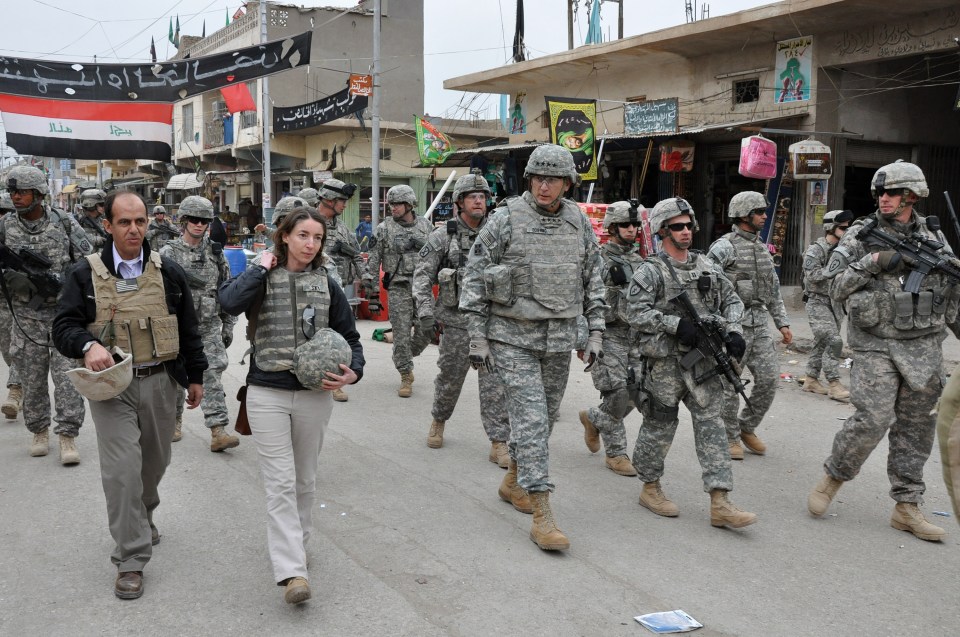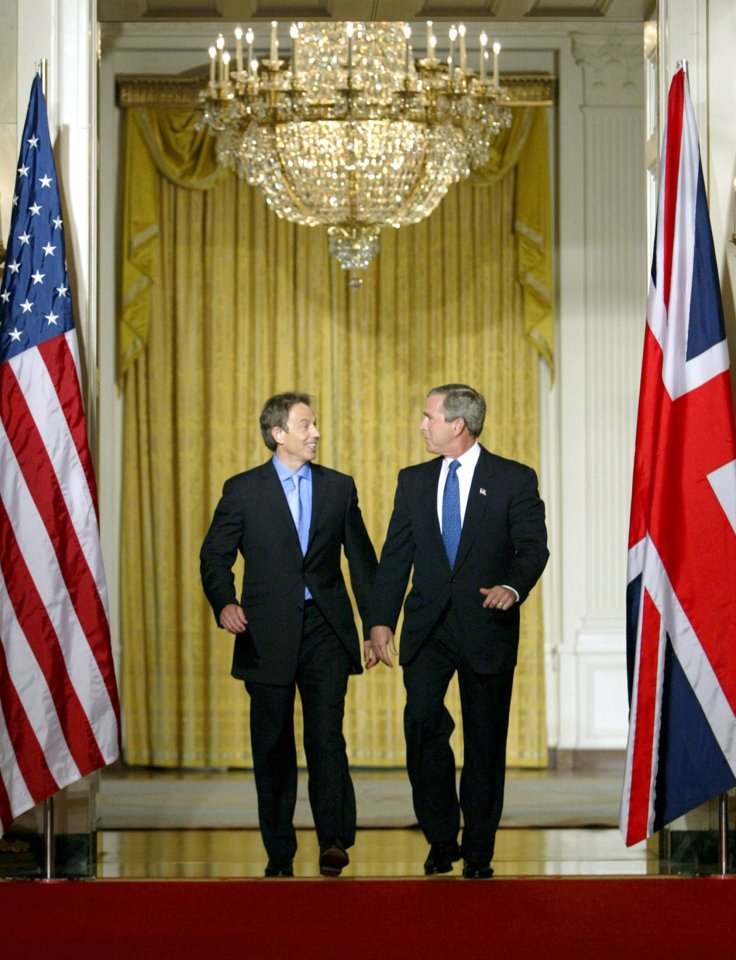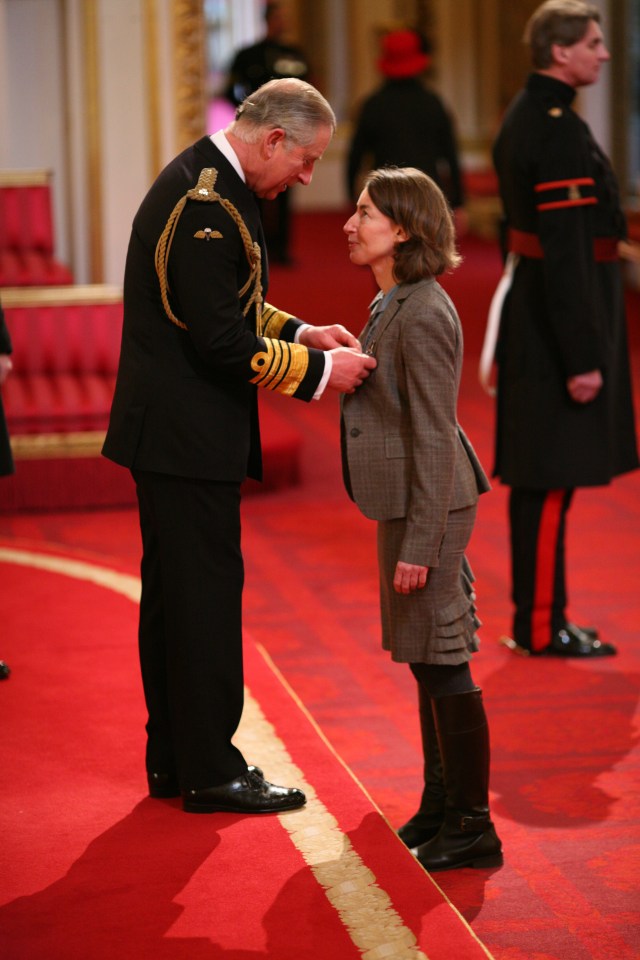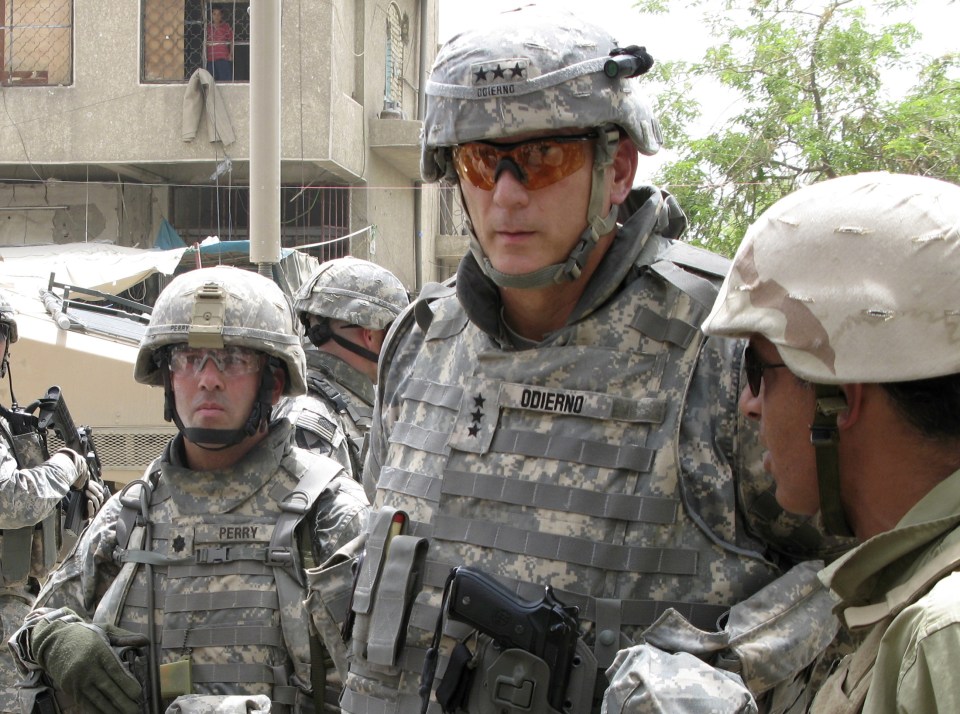‘I volunteered to help in Iraq … and found myself governing a province’
Civil servant Emma Sky reveals how she was sent to sort out post-war crisis with no guidance, protection, money or experience

WITHIN weeks of agreeing to help hand Iraq back to its people in 2003, Emma Sky was on a plane and governing an entire province.
The civil servant, an expert on the Middle East, arrived with no money, no security and no idea what she was supposed to be doing.
Yet she would go on to serve in Iraq longer than any other British official — and receive an MBE and OBE for her crucial work there.
Here, in extracts from her book, Emma tells of a country in chaos.
June 2003
THERE was an email that was sent around the Civil Service asking for people to volunteer to go to work for the CPA (Coalition Provisional Authority) in Iraq.
I expressed interest and became a secondee to the CPA.
I was not given a briefing. There was a phone call.
It basically said: “You’ve spent a lot of time in the Middle East. You will be fine.
"Turn up at RAF Brize Norton. As soon as you get to Basra, there will be somebody to meet you.
"They will be standing there with a sign with your name on and will take you to the nearest hotel.”
When I got to Basra, obviously there was no one there with a sign with my name on it — nor a hotel. So I went on to Baghdad.
A British colonel welcomed me warmly.
I had never run a town in the UK, let alone a province in someone else’s country. I did not have the qualifications nor the experience for the job
There was nothing to worry about, he said, except for trigger-happy Americans. That was the main threat to Brits.
I made my way to the Palace and there I met the British team.
They said: “We have enough people here. We don’t have enough people in the north. Go north.”
So I went to Mosul. They said: “We’ve got someone here.”
I went to Erbil. They said: “We’ve got someone here but we haven’t got anyone in Kirkuk.”
So I went to Kirkuk.
When I arrived I was informed I was the senior civilian there, in charge of the province and reporting directly to the head of the CPA in Baghdad.
I had never run a town in the UK, let alone a province in someone else’s country.
I did not have the qualifications nor the experience for the job.
There was no job description. We weren’t given outlines of what our jobs were.
I don’t recall receiving an outline of what my job was until maybe September.
So up until then it was really how I interpreted what my role should be.
JULY 2003
On my seventh night in Kirkuk, I awoke abruptly to the sound of automatic gunfire.
It was four in the morning. Boom. Several colossal explosions suddenly shook the house.
Paralysed by the deafening sound, I remained in bed, totally naked, curled up in a ball with my hands over my ears, shaking like a leaf.
The attack may not have lasted even half an hour but it seemed much longer.
When the noise stopped I went downstairs to inspect the damage.
I discovered that four rocket-propelled grenades had been fired at the house, with one exploding on impact as it passed up through the building a few feet from my bed.
Fierce shooting from the Gurkhas on guard on the roof prevented the attackers from storming the house.
I had no bodyguards when I was away from the house, no armoured cars, even though regulations stated that I should only go out in one.
I sent an urgent message to the deputy British ambassador, John Sawers, in Baghdad.
The next day, he appeared in person in Kirkuk.
He told me to become a trusted partner to all groups and to get to know the Turkmen.
And that, in essence, was as far as guidance from the CPA went.
AUGUST 2003
By the time I arrived, the military was already making policy on the hoof.
They joked CPA stood for “can’t provide anything”.
I appeared in Kirkuk, a British civilian volunteer, supposedly seconded to the CPA but with no money and few staff, and was reliant on the Army for basic “life support”.
As the summer wore on, it became clear to Colonel Mayville, the American officer in command of the brigade based in Kirkuk, that he was not leaving any time soon and that the CPA document, which set out positions to be filled by civilians, was a fantasy.
I was not going to be reinforced with a large team of civilian experts, so Col Mayville proposed assigning some of his officers to work for me.
I had little contact with the CPA in Baghdad and none with London.
I was left to my own devices, with no one any the wiser.
Related Stories
SEPTEMBER 2003
I heard that 540 teachers from Hawija, south-west of Kirkuk, had been expelled from their positions as a result of de-Baathification — removing the members and influence of Saddam’s Ba’ath Party from public office.
Apparently, the architects of this policy in Washington had studied the experience of Germany in 1945 and regarded de-Nazification as a model. But far more Iraqis were affected by the policy than intended.
I felt powerless. I sent report after report to CPA Baghdad on the effect of de-Baathification in the province.
But there had never been a response.
The people sitting in CPA Baghdad did not have to meet the men and women in Kirkuk who could not feed their families or pay their rent.
They did not feel the devastating impact of this order.
In Kirkuk, de-Baathification was particularly problematic as it increased ethnic tensions between Arabs and Kurds.
General Ray Odierno, the commanding American officer and Mayville’s boss, understood if de-Baathification was implemented in areas under his control there would be hospitals without doctors and schools without teachers. The people would revolt.
Without reference to higher authorities, he issued an amnesty to all level-four Ba’ath party members in order to get teachers and doctors back to work.
But the payroll was controlled from Baghdad.
Systematically, all those with Ba’ath party membership in levels four and above had been removed from the payroll.
Quietly, however, the Brigade brought the teachers back to schools, paying their salaries out of military funds charged to a budget item labelled “Janitors”.
Once those funds ran out, there was no way to pay them.
Not long after, Paul Bremer, the American diplomat in charge of the CPA, and US secretary of state Colin Powell stopped briefly in Kirkuk.
Col Mayville and I had the task of escorting them to the helicopter in the morning.
“Thanks, Emma, good of you to turn up,” Bremer said.
“No problem, sir, it’s my job.”
“You could have sent the protocol officer,” Bremer responded. I smiled. How many staff did he think I had?
Secretary of Defence Donald Rumsfeld visited Kirkuk. He turned to the map and asked: “Where is Iran?”
The CPA in Baghdad was totally consumed with its own affairs and unable to compute, let alone deal with, the challenges in the provinces.
Each coordinator felt their province was the most critical to Iraq’s future.
This had become clear when I had gone down to Baghdad with Gen Odierno to attend the Commanders and Coordinators Conference.
At the meeting, Bremer laid out the Seven Steps on the path to Iraqi independence.
In his hand, Bremer held an inch-thick document he said was the plan for achieving our goals.
Major General David Petraeus, the most articulate of the generals, was the first to respond.
He asked how it was possible for us to be presented with a plan to implement when none of us had been consulted on it.
He did not receive a reply.
OCTOBER 2003
Secretary of Defence Donald Rumsfeld visited Kirkuk.
Gen Odierno tried to run through a series of PowerPoint slides, but Rumsfeld kept interrupting, shooting questions at him.
How many soldiers in theatre? How many killed? How many wounded?
He turned to the map of Kirkuk and northern Iraq and asked: “Where is Iran?”
I had hoped he knew that sort of thing. Why was he asking? Was that the next adventure?
FEBRUARY 2004
I took up my new job on Bremer’s Governance Team in Baghdad.
The level of violence in Iraq steadily increased.
Attacks on the Green Zone — a bizarre four-square-mile bubble inside Baghdad where the CPA was based — escalated.
“Big Voice” (the loudspeaker) would sound, telling everyone to take cover.
Medevac helicopters flew in wounded soldiers day in, day out.
Contact with Iraqis decreased, and the Green Zone turned into more of a fortress.
I was increasingly alarmed that the Coalition did not understand who it was fighting.
There were elements in Iraq that had not been here a year ago.
Local resistance to the occupation was combining with Islamist militants.
And many Iraqis who once looked to us in gratitude now wanted us gone.
JANUARY 2007
The violence was spinning out of control.
Tens of thousands of Iraqis had been killed and hundreds of thousands had fled their homes.
When I returned to the country in January to serve as Gen Odierno’s political adviser, death hung in the air.
It affected my every sense: The constant boom of explosions, the pat-patter of small-arms fire; the smell of burning cars, and much worse, of burning flesh; the deserted streets and the grisly news coverage.
The majority of Iraqi victims were killed in bombings or assassinations.
So many bodies were found floating in the Tigris that some Iraqis stopped eating fish.
Dead animals were used to conceal roadside bombs.
Bodies of dead Iraqis were booby-trapped to blow up relatives who approached them.
I was increasingly alarmed that the Coalition did not understand who it was fighting
Mentally disabled children were turned into suicide bombers.
Funerals were frequently the target of attacks.
The morgues were full of mutilated bodies: If the head was cut off, it was Shia; if the head was drilled through, it was Sunni.
Iraq was in the midst of civil war.
But we were not allowed to acknowledge it because it was not what Washington wanted to hear.
AUGUST 2010
Gen Odierno and I prepared to leave Iraq.
I had left the country euphoric after the Surge (increase in US troops) of 2007.
But this time I felt sad, angry and very afraid for Iraq’s future.
Washington had reneged on the promises it made to Iraqis to protect the political process and it betrayed the very principles the US military believed it was fighting to uphold.
Instead, the US took the gamble of betting on Prime Minister Nouri al-Maliki, in the mistaken belief that he shared the same goals as us.
General Odierno had gone as far as he could.
He had warned of the authoritarian tendencies of Maliki.
He campaigned at the highest level in person, and wrote countless reports.
“I gave my best military advice,” he said. But he had been ignored.
- Adapted by EMILY FAIRBAIRN from The Unravelling: High Hopes And Missed Opportunities In Iraq, by Emma Sky. Published by Atlantic Books, £9.99.











